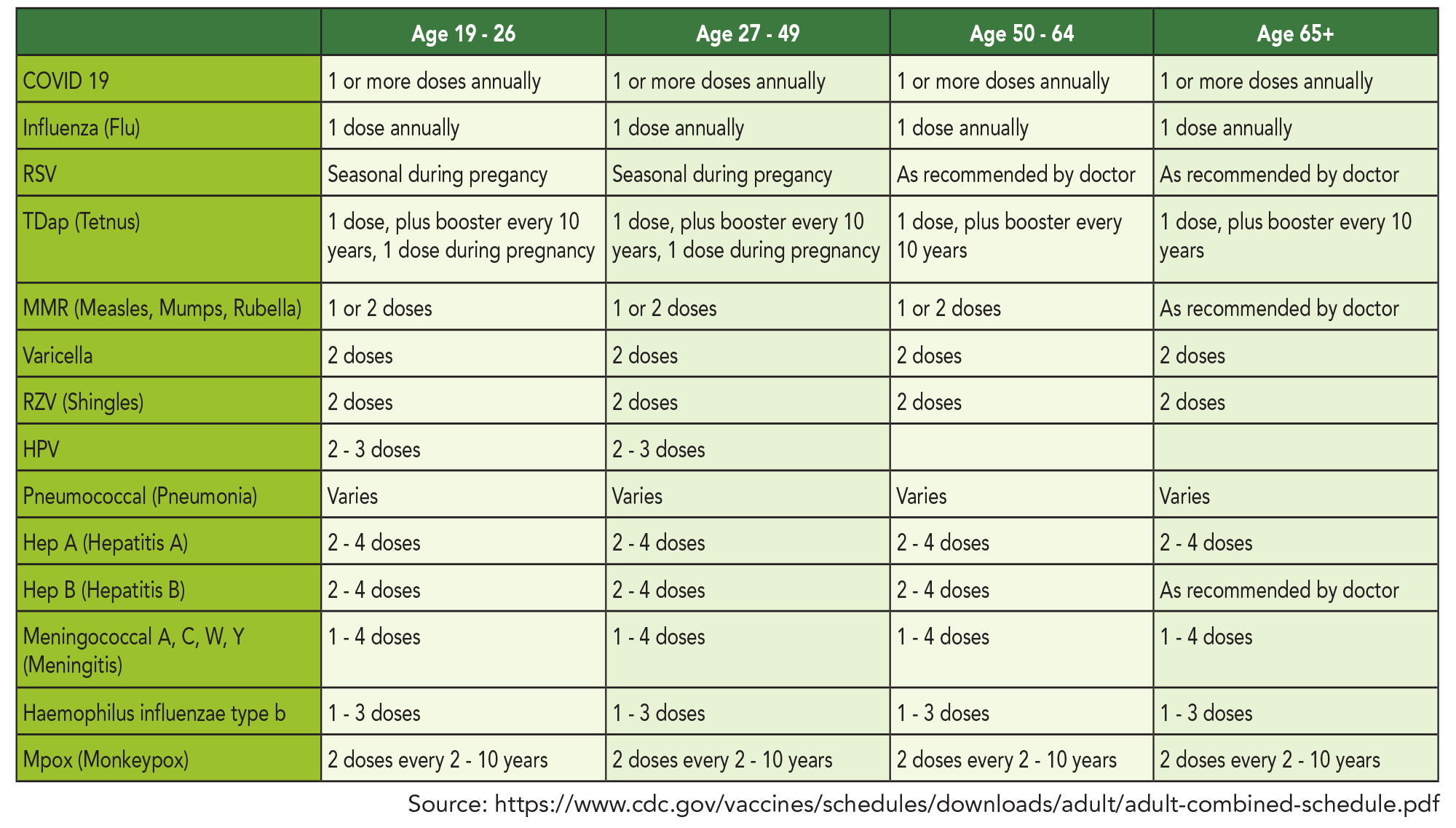A Self-Advocate’s Guide to Vaccines
Click the blue questions to read the answer. Last Revised: August 2024
-
Vaccines are shots of medicine that help you stay healthier.
They may prevent or lower your chance of getting sick as easily with a virus.
Vaccines are safe and keep you healthy!
-
Vaccines help teach your body how to recognize and fight off harmful germs.
Vaccines use a weak or “dead” version of a germ that causes a disease.
Vaccines prepare your body to defend itself and keep you healthy from harmful germs.
Some vaccines may need more than one dose to work. Some may need a booster later on.
Some vaccines may make you feel hot or cold, tired, weak, or sore after you get the shot.
-
Things that need to be updated frequently:
COVID-19 vaccine updated annually
Influenza/Flu vaccine updated annually
Tetanus (Tdap or Td) updated every 10 years
Things you might need if you are older than 50 years old or are immunocompromised. You can talk to your healthcare provider about whether or not you need these:
RSV
Pneumococcal (Pneumonia)
Shingles
Things routinely given when you are a child/teen. If you don't know whether you had these, you can talk to your healthcare provider:
MMR
Varicella
HPV
Hepatitis A
Hepatitis B
Meningococcal
DTap (diphtheria, tetanus, pertussis)
Click here to see a detailed guide on vaccines and when you should get them.
Use this as a guide to help you understand when you may need to get your next vaccination based on your age. You may have gotten these vaccines when you were a child.
This guide will help you start a conversation with your doctor. Your doctor will have more information on your specific vaccine needs.
-
Wear a short sleeved shirt to get easy access to your arm.
The shot will feel like a pinch or a prick.
Request a warning. Ask for a count down before the shot.
Bring someone or something like a book or device to help keep your mind relaxed.
Sometimes you will have to wait for up to 15 minutes after you get a vaccine to make sure you are okay to go home.
You have the right to ask about side effects.
You have the right to ask what is in the vaccine and how it works.
You have the right to give or not give consent for vaccinations. You have the right to say “yes” or “no.”
-
You can get a vaccine at your doctor’s office, at a vaccine clinic, or at a pharmacy like CVS or Walgreens.
Contact the Disability Information and Access Line to learn more about COVID.
Call 888-677-1199 or visit https://DIAL.ACL.gov.
Vaccine Schedule for Adults:
Find your age on this guide to see which vaccines you may need. You may have gotten some of these vaccines as a child.
Talk to your doctor if you have questions about your vaccines.
For more information:
Contact your primary care provider.
Sources:
Bomar, Thomas. “Upper Respiratory Tract Infection.” (Updated 26 June 2023). StatPearls Publishing; 2024 Jan-. Available from: https://www.ncbi.nlm.nih.gov/books/NBK532961/
CDC - Adult Combined Schedule of Vaccines: https://www.cdc.gov/vaccines/schedules/downloads/adult/adult-combined-schedule.pdf
Public Health Communication Collaborative. “Communicating More Effectively About Vaccines” (25 August 2024). https://publichealthcollaborative.org/resources/communicating-more-effectively-about-vaccines/




